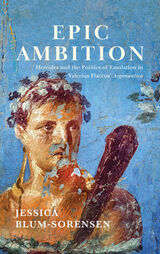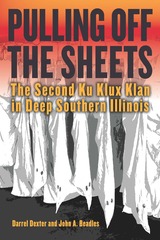
The Greek epic account of the quest for the golden fleece.
Apollonius Rhodius’ Argonautica, composed in the 3rd century BC, is the epic retelling of Jason’s quest for the golden fleece. Along with his contemporaries Callimachus and Theocritus, Apollonius refashioned Greek poetry to meet the interests and aesthetics of a Hellenistic audience, especially that of Alexandria in the Ptolemaic period following Alexander’s death. In this carefully crafted work of 5,835 hexameter verses in four books, the author draws on the preceding literary traditions of epic (Homer), lyric (Pindar), and tragedy (especially Euripides) but creates an innovative and complex narrative that includes geography, religion, ethnography, mythology, adventure, exploration, human psychology, and, most of all, the coming of age and love affair of Jason and Medea. It greatly influenced Roman authors such as Catullus, Virgil, and Ovid, and was imitated by Valerius Flaccus.
This new edition of the first volume in the Loeb Classical Library offers a fresh translation and improved text.

The Roman epic retelling of the quest for the golden fleece.
Valerius Flaccus, Gaius, Latin poet who flourished in the period ca. AD 70–90, composed in smooth and sometimes obscure style an incomplete epic Argonautica in eight books, on the auest for the golden fleece. The poem is typical of his age, being a free re-handling of the story already told by Apollonius Rhodius, to whom he is superior in arrangement, vividness, and description of character. Valerius’ poem shows much imitation of the language and thought of Virgil, and much learning. The chief interest of the epic lies in the relationship between Medea and Jason, especially the growth of Medea’s love, where Valerius is at his best. The long series of adventures and various Roman allusions suggest that the poet meant to do honor to Vespasian (to whom the epic is dedicated) with special reference to that emperor’s ships in waters around Britain.

Apollonius was a Greek grammarian and epic poet of Alexandria in Egypt and lived late in the 3rd century and early in the 2nd century BCE. While still young he composed his extant epic poem of four books on the story of the Argonauts. When this work failed to win acceptance he went to Rhodes where he not only did well as a rhetorician but also made a success of his epic in a revised form, for which the Rhodians gave him the 'freedom' of their city; hence his surname. On returning to Alexandria he recited his poem again, to applause. In 196 Ptolemy Epiphanes made him the librarian of the Museum (the university) at Alexandria.
Apollonius's Argonautica is one of the better minor epics, remarkable for originality, powers of observation, sincere feeling, and depiction of romantic love. His Jason and Medea are natural and interesting, and did much to inspire Virgil (in a very different setting) in the fourth book of the Aeneid.

Focusing especially on Hercules, Blum-Sorensen explores how Valerius’ characters—and, by extension, their Roman audience—misinterpret exemplars of past achievement, or apply them to sad effect in changed circumstances. By reading such models as normative guides to epic triumph, Valerius’ Argonauts find themselves enacting tragic outcomes: effectively, the characters impose their nostalgic longing for epic triumph on the events before them, even as Valerius and his audience anticipate the tragedy awaiting his heroes. Valerius thus questions Rome’s reliance on the past as a guide to the present, allowing for doubt about the empire’s success under the new Flavian regime. It is the literary tradition’s exchange between triumphant epic and tragedy that makes the Argo’s voyage a perfect vehicle for Valerius’ exploration: the tensions between genres both raise and prohibit resolution of anxieties about how the new age—mythological or real—will turn out.
READERS
Browse our collection.
PUBLISHERS
See BiblioVault's publisher services.
STUDENT SERVICES
Files for college accessibility offices.
UChicago Accessibility Resources
home | accessibility | search | about | contact us
BiblioVault ® 2001 - 2024
The University of Chicago Press









